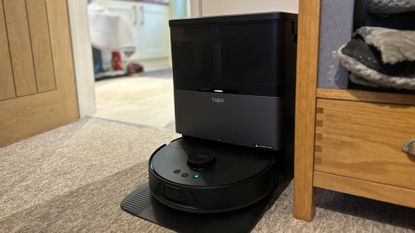Appliances
The latest Appliances breaking news, comment, reviews and features from the experts at T3
Explore Appliances
-
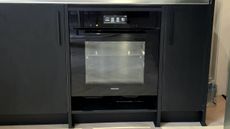
I replaced my 20-year-old oven with a high-tech connected model – and I didn’t expect the tech to be this useful
I thought “smart ovens” sounded like gimmick territory, but the Miele H 7860 BPX built-in cooker has genuinely changed how I cook
By Lee Bell Published
-
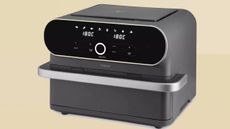
Tower’s new Elite air fryers are here, and I can’t decide which one I like best
Tower takes on Ninja with new Elite air fryers
By Bethan Morgan Published
-
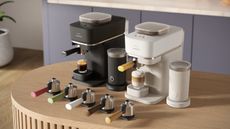
I’ve been waiting nearly a year for Philips’ easiest bean-to-cup coffee machine – and it’s finally here
Say hello to the Philips Baristina
By Lizzie Wilmot Published
-
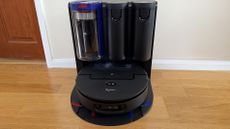
Dyson Spot + Scrub Ai review: decent but it could be better
Smart scrubbing and object recognition add a whiff of AI appeal to Dyson’s latest robot cleaner
By Rob Clymo Published
-
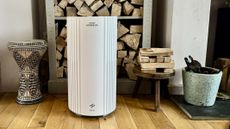
Coway Airmega 350 air purifier review: powerhouse air purification for larger rooms
Where high-performance HEPA & carbon filtration meets quiet simplicity
By Derek Adams Published
-

Salter's new air fryer could be the best-looking model available right now
It's not a bad price either
By Lizzie Wilmot Published
-

Le Creuset launches Jardin stoneware collection and it’s got me excited for spring
Is it spring already?! Le Creuset’s new Jardin collection seems to think so
By Bethan Morgan Published
-
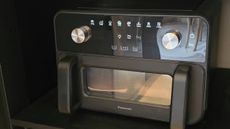
Panasonic Flex NF-BC1000KXC Air Fryer review: an excellent, spacious air fryer with one frustrating flaw
A clever, family-sized air fryer with steam cooking and a pizza-ready drawer – let down by a major design flaw
By Lee Bell Published
-
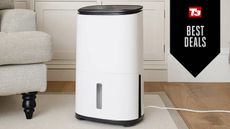
Meaco’s five-star dehumidifier that’s ‘quietly efficient’ just got a rare discount
The Meaco Arete One is down to an all-new low price that you won’t want to miss
By Bethan Morgan Published
-
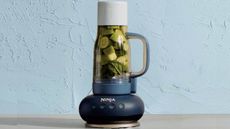
Ninja’s new blender has the strangest design I’ve ever seen – and it's finally available in the UK
Ninja’s BlendBOSS blender might look odd, but it also makes a lot of sense
By Bethan Morgan Last updated
-

Xiaomi’s new premium smart fridge could be the best the market has seen in years
It's available to buy from today
By Lizzie Wilmot Published
-
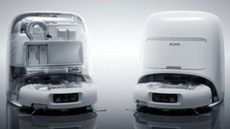
DJI’s Romo robot vacuums could be getting a major Matter update
Could DJI’s first-ever robot vacuums be getting Matter support?
By Bethan Morgan Published
-
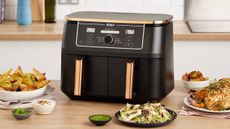
Hate your air fryer’s loud beeping? This is the hidden feature you need to know about
Can’t stand your air fryer beeping? I’ve got the trick for you…
By Bethan Morgan Published
-

Nespresso’s limited-edition decaf capsules are perfect for night-time coffee lovers
French Lavender & Vanilla Decaffeinato is here
By Lizzie Wilmot Published
-
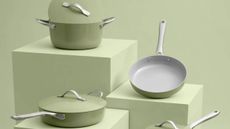
ProCook takes on Our Place with its own colourful cookware sets – and they’re a fraction of the price
ProCook debuts cookware and bakeware sets, and I’m officially obsessed
By Bethan Morgan Published
-
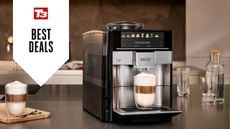
This Siemens bean to cup coffee machine just got an insane £720 price cut!
Upgrade your coffee game with 55% off Siemens’ smart coffee machine
By Bethan Morgan Published
-
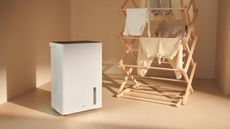
I’ve tried many dehumidifiers, and these 3 are the best for winter air quality and laundry care
You need a dehumidifier this time of year – but which one should you choose?
By Bethan Morgan Published
-

Kärcher’s new robot vacuum introduces a roller mop for the first time
It follows hot on the heels of the Kärcher RCV 5
By Lizzie Wilmot Published
-
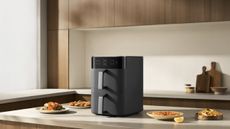
Xiaomi’s new stacked air fryer gets a bigger capacity and smarter design
Yet it's still 35% smaller horizontally than its predecessor
By Lizzie Wilmot Published
-

This clever 3-in-1 vacuum solves the robot vs cordless cleaning dilemma
The xLean TR1 feels like it could change how we think about home cleaning
By Lizzie Wilmot Published
-
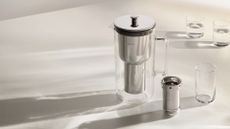
I didn’t think I needed a water filter jug until I noticed these 3 signs
It might seem like a boring gadget – until you actually use one
By Lizzie Wilmot Published
-
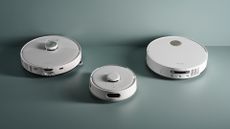
Best robot vacuum cleaner 2026: hands-free cleaning while you're out
Find the best robot vacuum cleaners from top brands including Roborock, iRobot, EZVIZ, Eufy and SwitchBot
By Lizzie Wilmot Last updated
-
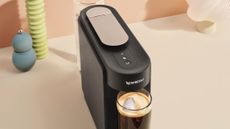
Nespresso launches first pod coffee machine in years – and it’s the sleekest one yet
The Nespresso Vertuo Up has arrived in the US
By Lizzie Wilmot Published
-

Cuisinart's new touchscreen toaster stops you burning your toast – and it costs less than you’d think
The rise of the smart toaster continues with Cuisinart’s new touchscreen toaster
By Bethan Morgan Published
-

IKEA’s new 2-in-1 air purifier is a smart table and storage solution in one – and the price is seriously affordable
IKEA just put an air purifier into a table!
By Bethan Morgan Published
-
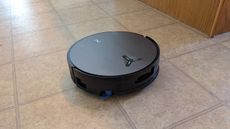
Ecovacs Deebot X11 Omnicyclone review: strong performance but AI features struggle to deliver
A bagless robot vacuum hybrid that promises a lot but ultimately is a bit disappointing thanks to lacklustre mopping and stain identification
By Tim Gee Published
-

So you're thinking of upgrading your vacuum cleaner? You must do these 3 things before you splurge
Don't jump into an expensive mistake
By Lizzie Wilmot Published
-

Pour your favourite pints with the Beerwulf BLADE and Save £100 this Winter
Sponsored by Beerwulf
Beerwulf's BLADE starter packs give you everything you need to bring the pub home.
By T3.com Last updated
-
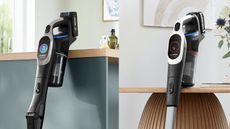
Bosch’s new cordless vacuums rival Dyson and Shark – at a much lower cost
They were showcased at CES last week
By Lizzie Wilmot Published
